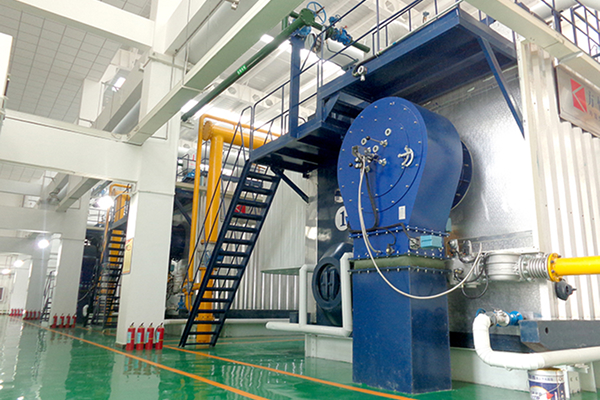Modular boiler packs—with staged firing and a PLC (Programmable Logic Controller) brain—continuously fine‑tune their output to actual process demands, so you only burn fuel when you really need it.
Understanding Modular Boiler Systems
A modular configuration comprises multiple independent combustion units operating in parallel as a unified network. Unlike monolithic boilers, this architecture allows facilities to:
-
Scale Capacity On-Demand: Activate only the units needed to meet current load thresholds.
-
Isolate Maintenance: Service individual modules without shutting down entire systems.
-
Distribute Workloads: Balance operational stress across components to extend equipment lifespan.
Modular industrial steam boiler
Key Advantages of Modular Boiler Design:
-
Staged Combustion Control: Multi-tiered burners activate incrementally based on load fluctuations, ensuring optimal fuel utilization.
-
PLC-Driven Optimization: Machine learning algorithms analyze historical data to predict demand patterns, enabling proactive adjustments.
-
Redundancy & Fail-Safe Protocols: Backup units engage automatically during peak demand or primary module failures.
Modular industrial hot water boiler
Energy Efficiency Through Predictive Regulation
Traditional single-unit boilers often operate at partial loads, wasting resources during low-demand phases. Modular configurations solve this by automatically powering down redundant units while maintaining baseline pressure. PLC systems further enhance precision by monitoring variables like steam pressure, flow rates, and ambient temperatures to calibrate outputs within ±1% accuracy.
Case Study: Pharmaceutical Manufacturing
A tier-1 pharmaceutical plant reduced annual gas consumption by 18% after retrofitting with a 4-module boiler array. The PLC’s fault detection protocols also decreased unplanned downtime by 23% through early warnings about sediment buildup and valve wear.
Modular industrial szs water tube boiler
Compliance & Safety Integration
Third-party certifications (ASME, ISO 13705) ensure adherence to emission standards. PLCs continuously log performance metrics for audit trails while enabling remote diagnostics via encrypted IoT interfaces.
Conclusion
Modular boiler setups that adjust their firing stages on the fly are transforming how plants handle heat. They scale easily as needs change and use real‑time data to cut fuel bills and shrink CO₂ emissions.
Get your best price
Quickly compare 3 FREE quotes
- Engineer quick quote
- The overall delivery speed is fast
- Financial choice
- Low installation costs and cost savings
25 years+ of boiler R&D
More than 20 innovative technologies



